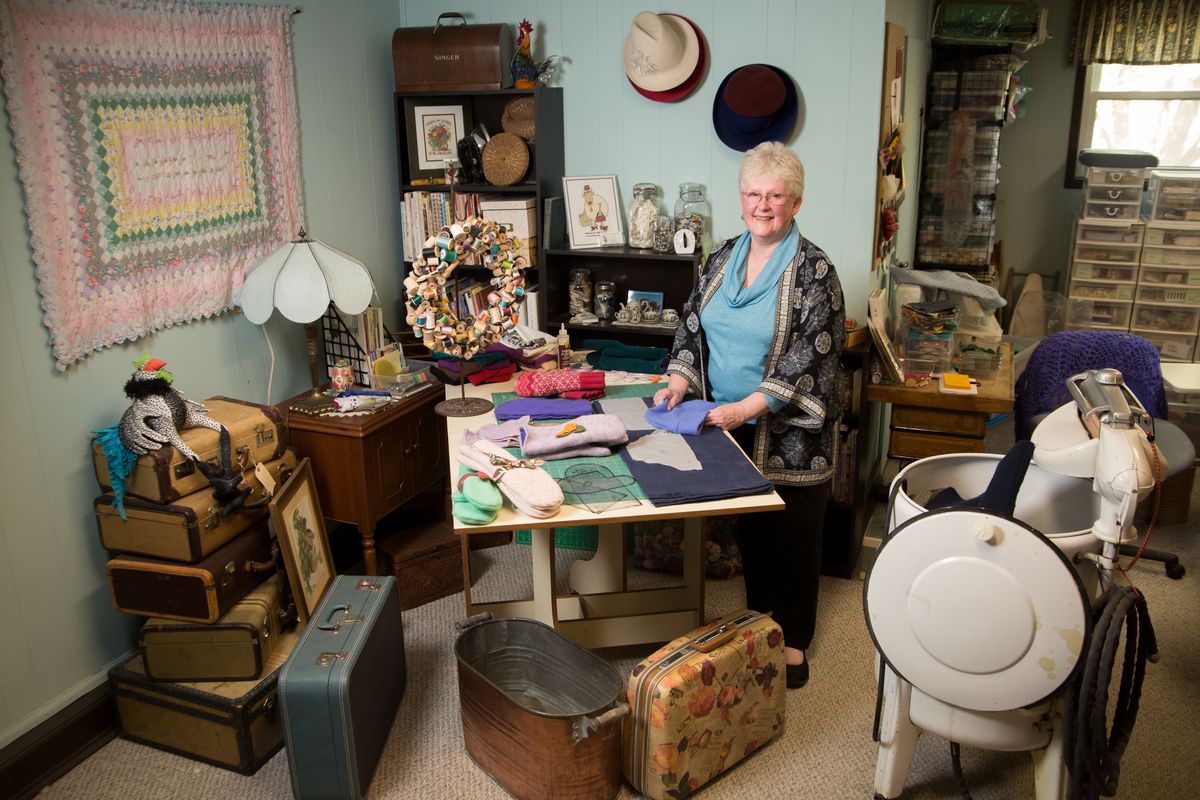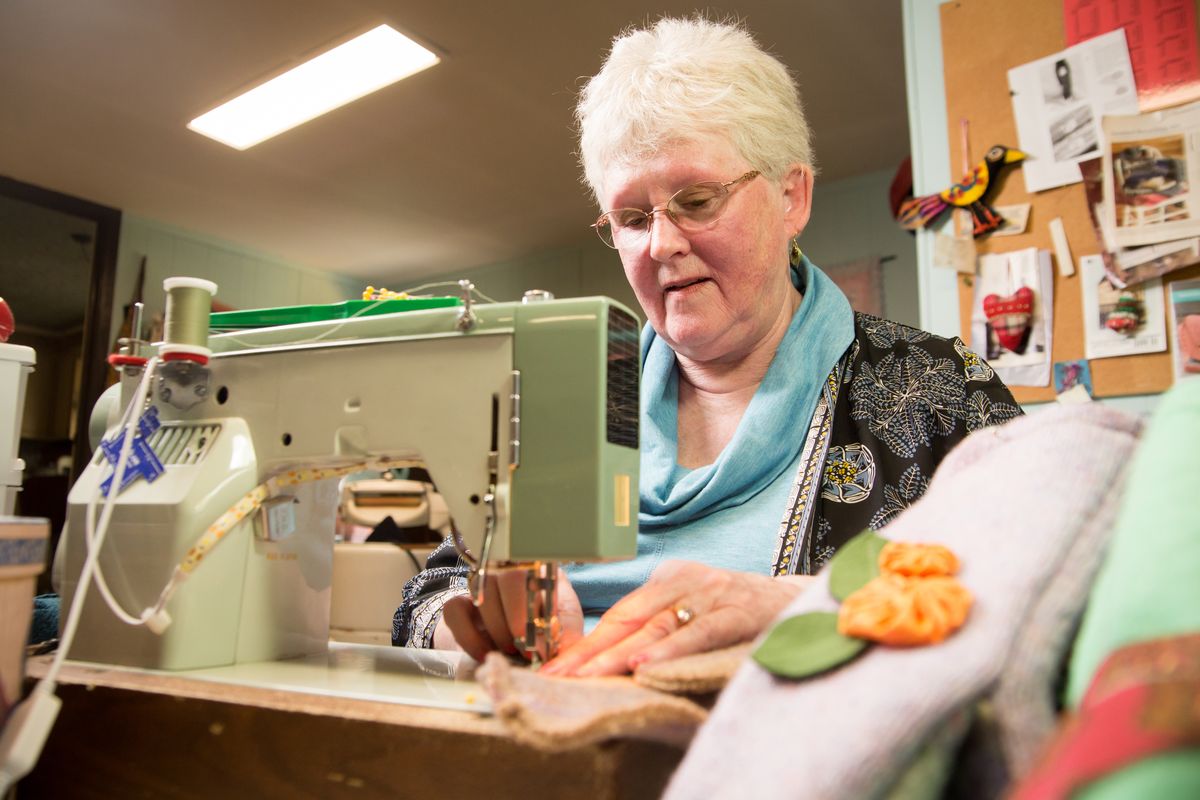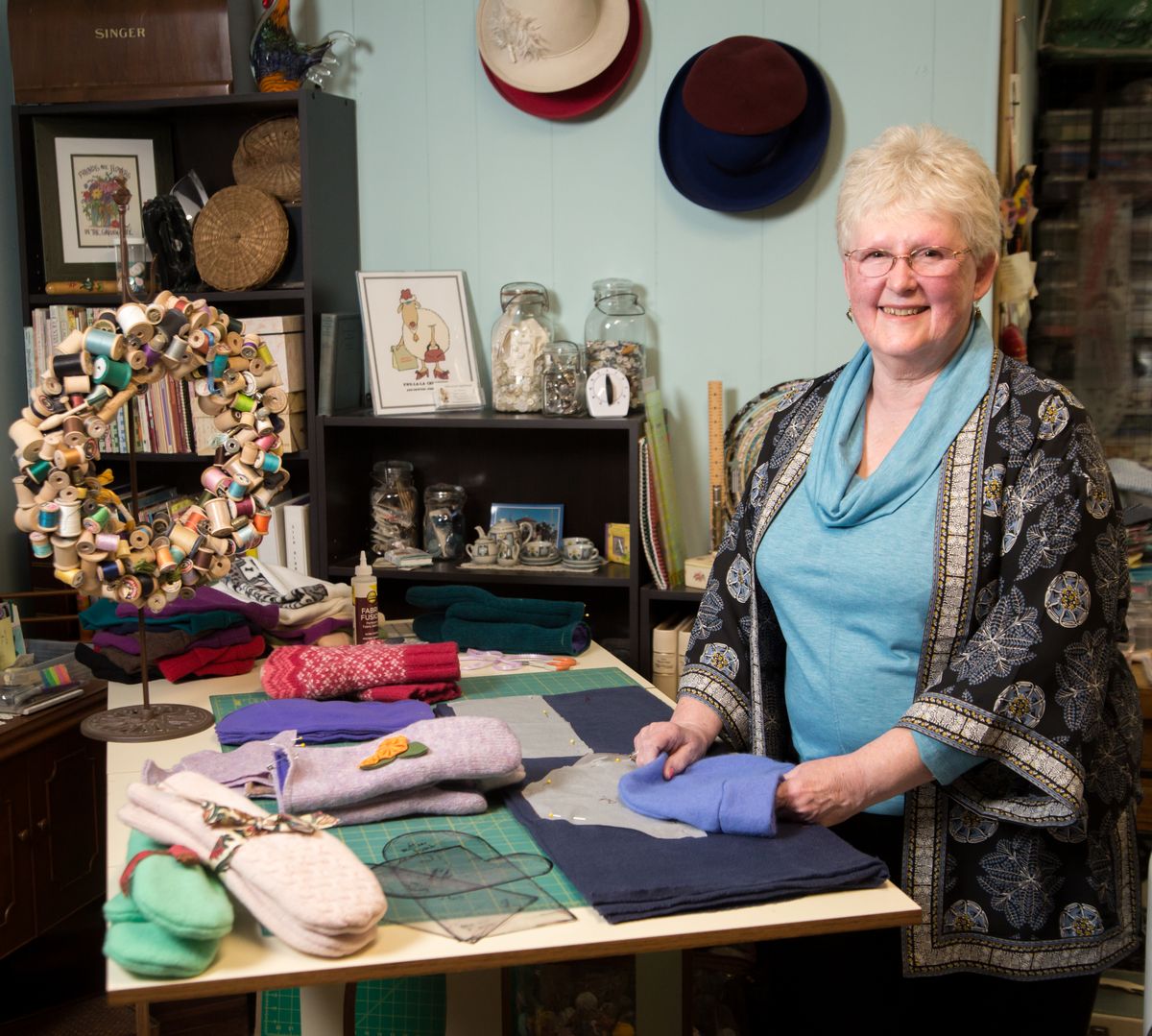Pandemic projects: Making, donating hundreds of boiled wool mittens to women in need
Ann Newton practically runs a one-woman mitten factory from her Spokane Valley home, turning thrift shop sweaters into cozy mittens for distribution to the homeless. Newton began producing the mittens in summer of 2019, deciding to combine compassion with sewing skills and her own funds to give the woolen hand warmers to local organizations like Women's Hearth, Catholic Charities, St. John's Cathedral and more. Each completed pair of mittens is essentially comprised of four mittens, as Newton takes the time to make inner linings of fleece which are then sewn inside of the outer repurposed sweater wool. By April 22, Newton had created 285 pairs of mittens, not counting an additional 41 pairs currently in the works. (Libby Kamrowski/ THE SPOKESMAN-REVIEW)Buy a print of this photo
Many women in and around Spokane have toasty, warm hands during the frigid winter , and they have Ann Newton to thank for it.
She took bins of wool sweaters from thrift stores and turned them into cozy mittens, donating them to nonprofits that serve homeless women.
“Ten years ago, when I retired from being a florist, recycling was all the rage,” she explained. “I found a pattern for making purses out of wool sweaters.”
Newton began scouring area thrift stores, amassing quite a collection. But how many wool purses does a person need?
In the summer of 2019, she found new purpose for old wool.
“I started making mittens,” she said.
A lot of mittens.
In 2019, she donated 115 pairs.
Then the pandemic struck.
“I still had a basement full of sweaters,” Newton said. “And all I had was time.”
Her mitten-making picked up pace.
She felts the sweaters, then presses them and cuts them apart to transform them into mittens.
“Felting is the process of shrinking the wool down,” she explained. “Sweaters must be at least 80% wool to properly felt.”
The product is often called “boiled wool” and the process starts with washing the sweaters in hot water. That’s where old technology came to the rescue.
“After plugging the pump twice in our washer, my husband requested I not do that anymore,” said Newton.
While helping a friend clean out a storage unit, she found a working wringer washing machine, and the friend let her take it home.
No more clogged pump.
Following the hot water wash, she “shocks” the sweaters in cold water and then dries them. After pressing the garments to flatten the seams, she cuts them apart, then cuts them into mittens using a pattern she found online. She stitches them together on the sewing machine she’s had since the 1960s.
“If the sweaters have moth holes, sometimes they’ll close up in the felting process,” she said.
Details matter to Newton.
She makes the mittens long enough to cover the wrists. When she tried on a pair, she didn’t like the rough feel of the seams, so she bought yards and yards of soft fleece. Each pair comes with a fleece liner.
“They’re doubly warm to the touch when you put them on,” she said. “Each mitten is actually two.”
She often adds decorative touches to her creations.
“If you’re homeless and don’t have much, something pretty means a lot,” Newton said.
In 2020, she donated 50 pairs to the Women’s Hearth, 10 to St. John’s Cathedral, 15 to the Cathedral’s Windfall Thrift Store and 41 pairs to Catholic Charities. She also made 10 hats and five scarves for Catholic Charities.
“Cashmere is too thin for mittens, but who wouldn’t want a cashmere hat?” she asked, holding up a periwinkle blue cap.
So far this year, she’s made 50 pairs of mittens and has another 41 in the works. She’s also out of sweaters.
With no wool to work with, she and her sisters-in-law turned to quilting, making 54 quilts for CASA’s My Bag program.
Newton has no idea how much money she’s spent on sweaters and supplies because that really doesn’t matter to her.
“When COVID hit, I couldn’t go anywhere. No church. No PEO (Philanthropic Educational Organization),” she said. “This gave me a purpose when there was nothing else.”
———
Cindy Hval can be reached at dchval@juno.com



